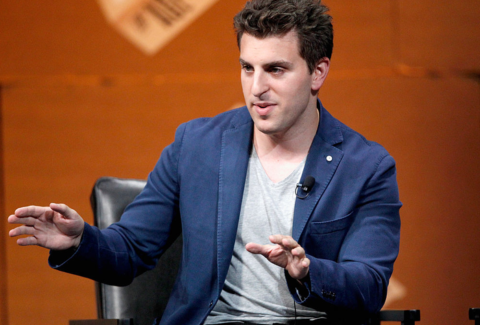The (revised!) 5Cs framework for thought leadership
A few months back I had written the “3R” framework for thought leadership: Read, Reflect and (W)rite.
I, ahem, reflected on it since then… and realised that it was missing a few key pieces.
So here is my revised thought-leadership model, conveniently christened as the 5Cs Framework.
In order to be a thought leader, you need to: Consume – Cerebrate – Confer – Create – Coach
Let’s dive in.
1. Consume:
Reading is, of course, critical. But just ‘reading’ is too narrow. Different people get their information in different ways. Some prefer visual inputs, while others like to listen to stuff. Do what suits you. But consume. And consume the good stuff.
Unfortunately, the news media and social media entities are incentivised to hook you and keep you engaged, no matter the cost. So they stoop to the lowest common denominator. They prioritise breaking news over brain food. The sensational over the sensible. Timepass over thought-provoking stuff.
David Perell (online course teacher) opines in his brilliant blog-post, ‘News in the Age of Abundance‘, that most news is like sugar for the mind. Just like we have realised how harmful sugar is for the body, we should also realise the ill-effects of getting swayed by the news-cycle with its endless stream of sensational, scandalous stuff.
Ask yourself – is there any improvement in your life by reading/viewing such content?
More importantly try this experiment: What if you don’t read the newspaper, don’t watch any TV news and avoid online news/ Twitter/Facebook for a month? Does that affect your life in anyway?
You know what, it will. But in a massively positive way. Because you can then use the freed-up hours to read some of the good stuff. Pick high-quality fiction. Read history. A good biography. Search for great non-fiction from your field (or others). Subscribe to good newsletters (ahem). Listen to riveting podcasts. Watch TED Talks. It will enrich your life.
It’s said, “You are what you eat” for your body. You can apply the same adage to your mind.
Consume well and you will see an immediate improvement in your thoughts.
Which is what we come to next.
2. Cerebrate
(I struggled to come up with a word from ‘C’ for this one. Cogitate was too esoteric. ‘Cerebrate’ just made the cut ;p)
I have written earlier about the importance of reflection. Just mindless reading without stopping to think (actually think) about it, doesn’t add too much value.
There’s a funny story about Bill Gates which illustrates this point:
‘When Bill Gates was in the sixth grade, his parents decided he needed counseling. He was at war with his mother Mary, an outgoing woman who harbored the belief that he should do what she told him. She would call him to dinner from his basement bedroom, which she had given up trying to make him clean, and he wouldn’t respond. “What are you doing?” she once demanded over the intercom.
“I’m thinking,” he shouted back.
“You’re thinking?”
“Yes, Mom, I’m thinking,” he said fiercely. “Have you ever tried thinking?”‘
Gates famously takes off for a ‘week in the woods‘, where he reads and reflects on the future of technology.
Yuval Noah Harari, the author of Sapiens, meditates for two-hours everyday – which enables him to come up with his clutter-breaking ideas.
My own technique for reflection is to do it while cycling or walking. I take a work problem that I’m grappling with, ‘load’ it in the mind, and then set off.
Almost always, as if by magic, the mind will come up with a solution for the issue.
Make sure you carve out some reflection time into your daily routine. Even 10-15 mins a day is better than nothing.
Now while reflection is important, we are not solitary creatures. We need to get inputs from others too. Which is where the next ‘C’ comes in.
3. Confer
To be honest this is something I am weak at, especially nowadays.
Earlier, when I was working in other organisations, there was ample opportunity to get inputs from others. Now that I’m a solo-practitioner, it is more challenging. But I still try to get inputs. My first port of call is at home. I would ask my wife and my dad – both of whom obviously know me well and are able to give balanced and honest feedback. I’ve frequently been able to get unstuck on knotty issues just by talking to them.
I also have some great friends (who were ex-colleagues) who are able to give their valuable inputs.
Finally, on specialised issues, I don’t hesitate to reach out to experts for ideas. For example, for the e-Course, I got great inputs from a friend who’s an inveterate consumer. For my upcoming podcast, I reached out to Deepak Jayaraman (who runs the uber-popular ‘Play to Potential‘ podcast and was very kind and helpful with his thoughts). (The podcast – a couple of months away!)
Don’t assume you can come up with great ideas yourself. Take time to confer with the right folks. Find them, use their knowledge and experience – and you will find a vast improvement in the quality of your ideas.
4. Create
All the reading, reflection and reactions from others won’t be of use – until you publish.
For many folks, here is where the biggest hurdle lies. Most tell themselves – ‘But I’m not a writer’.
Two things. One, you can always learn that (critical) skill. Two, even if writing isn’t your jam, there are many other ways to create.
Are you a visual person? Publish on Instagram. Create videos for YouTube!
Like the sound of your voice? Consider starting a podcast. You may think that too many folks are creating podcasts nowadays, but that’s ok. It will only make the medium more mainstream, and increase your potential audience … Plus there’s always a dearth of good content.
Finally, even in writing, it doesn’t have to be long-form blog pieces. If you are someone who reacts quickly to stuff and can come up with insightful, witty one-liners, then Twitter is your medium. (Just don’t get sucked into it’s reading spiral).
If you like to write short posts, then LinkedIn posts are a great way to publish.
And, of course, for longer posts, you have a plethora of options. LinkedIn, Medium, Substack.
Essentially, figure out someway for those wonderful thoughts inside your head to get an outlet.
I love this quote about writing by the way: “I write because I don’t know what I think until I read what I say.” – Flannery O’ Connor
5. Coach
What is the best way to really learn something? Teach it!

Every good thought-leader should also be a teacher.
Of course, most of us informally ‘teach’ concepts to our subordinates and peers. But try and include a formal element of teaching in your workplace. Organise a 1-hour session on a topic – that you are both knowledgable and passionate about. Prepare for it. (There will be some nerves. It’s completely natural). Conduct the session to the best of your ability, and show your passion for it. Answer the audience’s questions. Finally, soak in the warm afterglow of having imparted knowledge to others.
And so those are the 5Cs of thought-leadership: Consume – Cerebrate – Confer – Create – Coach.
Congratulations, you have become a Thought Leader!
Image credit: Photo by Jehyun Sung on Unsplash







